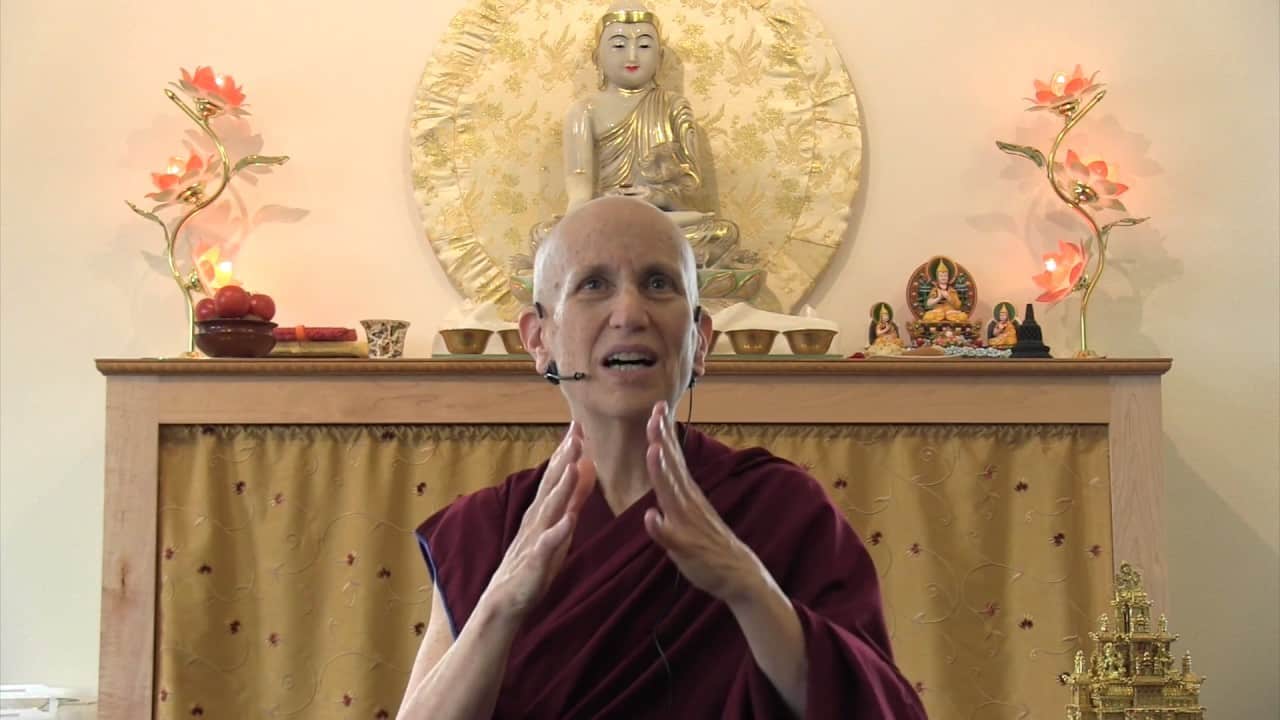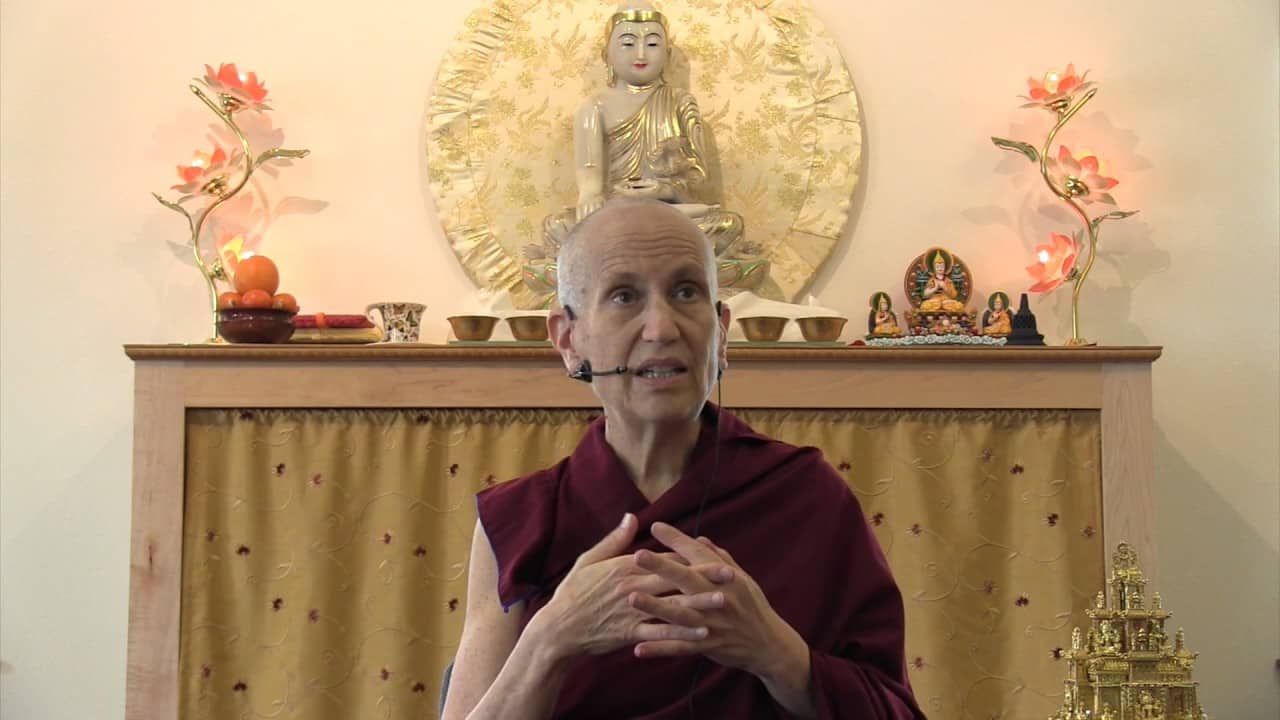Extensive giving
The text now turns to relying on the method for happiness in future lives. Part of a series of teachings on the Gomchen Lamrim by Gomchen Ngawang Drakpa. Visit Gomchen Lamrim Study Guide for a full list of contemplation points for the series.
- Guided meditation on generating compassion for those with whom we don’t get along
- Investigating obstacles that arise during meditation
- Using others’ suffering and its causes to destroy our own self-centered thought
- The practice of extensive giving to all sentient beings
Gomchen Lamrim 79: Extensive giving (download)
Contemplation points
While doing the “taking and giving” meditation below, consider some of the points Venerable Chodron taught this week:
- What are ways in which you coddle your self-centered thought? How might your experience be different if you heap all the sufferings of sentient beings onto the self-centered thought, keeping in mind that it is NOT who you are?
- When you’re doing the meditation, do you have resistance giving away your body, possessions, and virtue in general or to those you think will squander it? What antidotes can you apply to open up your mind?
- Geshe Jampa Tegchok says this practice helps us habituate giving without miserliness or regret. How much do you struggle with these two afflictions? Make personal examples. What might it be like to give without any reservation? What can you do to counter miserliness and regret when they arise?
- It can be helpful to imagine giving our bodies like we might give a branch of a tree. What does thinking of the body as a general object, without attachment, do for your mind?
- Key to the meditation is to tune in to what others need and give them that. Spend some time imagining what individual beings really need and then imagine them receiving it and being completely satiated.
Taking and giving meditation
- Start with yourself.
- Imagine the dukkha you might experience tomorrow (dukkha of pain, dukkha of change, and the pervasive dukkha of conditioning).
- Once you have a feel for it, take it on your present self so that the person you are tomorrow doesn’t have to experience it. You can imagine the dukkha leaving your future self in the form of pollution or black light, or whatever is useful to you.
- As you take on the dukkha in the form of pollution/black light, imagine it strikes at the self-centeredness at your own heart, like a thunderbolt, completely demolishing it (self-centeredness can appear as a black lump or dirt, etc).
- Now think about your future self next month. You’re future self as an old person and do the same exercise…
- Then consider the dukkha of those you are close to using the same points as above.
- Next, consider the dukkha of those towards whom you feel neutral.
- Next, the dukkha of those you don’t like or trust.
- Finally, consider the dukkha of beings in all the different realms (hell, preta, animal, human, demi god, and god).
- Having destroyed your own self-centeredness, you have a nice open space at your heart. From there, with love, imagine transforming, multiplying, and giving your body, possessions, and merit to these beings. Imagine them being satisfied and happy. Think that they have all the circumstances conducive to attaining awakening. Rejoice that you’ve been able to bring this about.
- Conclusion: Feel you are strong enough to take on others’ dukkha and give them your happiness. Rejoice that you can imagine doing this, practice it as you notice and experience suffering in your daily life, and offer prayers of aspiration to be able to actually do this.
Venerable Thubten Chodron
Venerable Chodron emphasizes the practical application of Buddha’s teachings in our daily lives and is especially skilled at explaining them in ways easily understood and practiced by Westerners. She is well known for her warm, humorous, and lucid teachings. She was ordained as a Buddhist nun in 1977 by Kyabje Ling Rinpoche in Dharamsala, India, and in 1986 she received bhikshuni (full) ordination in Taiwan. Read her full bio.


